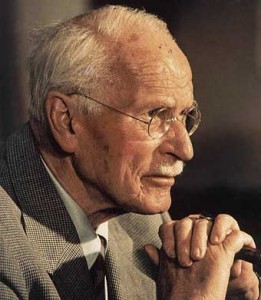 Carl Gustav Jung (1875-1961) was a Swiss psychotherapist and psychiatrist who founded the school of psychology known as analytical psychology. Jung’s contributions included (i) a developed theory of the structure and dynamics of the psyche, with an emphasis on the role of the unconscious in thought and behavior, (ii) a distinction between personal and collective elements of the unconscious, (iii) a detailed account of personality types, including introversion and extroversion as dominant attitude orientations, (iv) the idea of “individuation” as a natural impulse of the human person towards wholeness or integration of different parts of the psyche, and (v) dream interpretation and creative imagination as means of accessing and assimilating the contents of the unconscious to facilitate individuation.
Carl Gustav Jung (1875-1961) was a Swiss psychotherapist and psychiatrist who founded the school of psychology known as analytical psychology. Jung’s contributions included (i) a developed theory of the structure and dynamics of the psyche, with an emphasis on the role of the unconscious in thought and behavior, (ii) a distinction between personal and collective elements of the unconscious, (iii) a detailed account of personality types, including introversion and extroversion as dominant attitude orientations, (iv) the idea of “individuation” as a natural impulse of the human person towards wholeness or integration of different parts of the psyche, and (v) dream interpretation and creative imagination as means of accessing and assimilating the contents of the unconscious to facilitate individuation.
Although originally a student of Sigmund Freud’s and proponent of Freud’s psychoanalytic theory, Jung broke from Freud on several key issues that became the defining features of Jung’s school of analytical psychology. Jung’s ideas generated an approach to psychotherapy focused on the process of individuation, contributed to the development of the Myers-Briggs personality-type test, inspired the founding of Alcoholics Anonymous, and has provided material rich with implications for both the philosophy and psychology of religion.
Internet Resources on Jung and Analytical Psychology
Recommended Readings in Jung and Analytical Psychology
 Follow
Follow